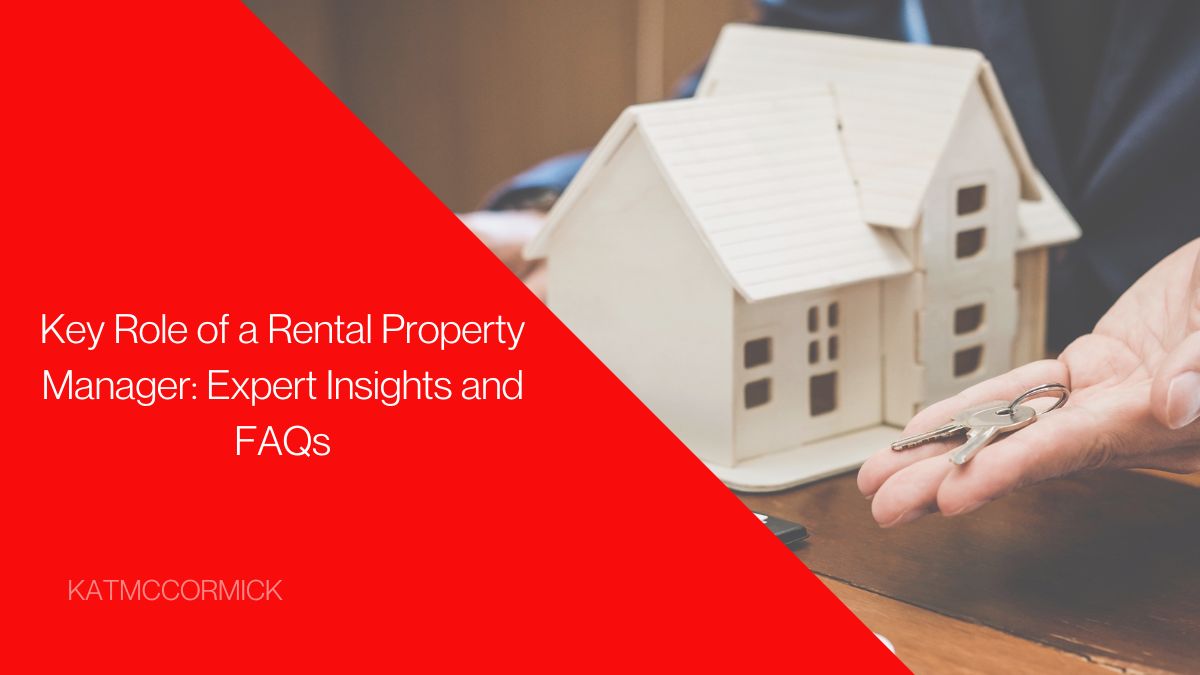Property managers serve as intermediaries between landlords and renters in the ever-changing real estate market. These experts guarantee efficient property management, pleasant tenant interactions, and regular repair. The purpose of this article is to help readers gain a thorough grasp of the many facets of a rental property manager’s job, including their duties, difficulties, and contributions to both property owners and tenants.
Understanding the Role of a Rental Property Manager
Managers of rental properties are essential to the smooth operation of their establishments because of the breadth and depth of their responsibilities. Let’s break down the essential elements of their function:
Tenant Acquisition and Screening
Finding reliable tenants is the first step in property management. To attract prospective tenants, property managers create attractive property listings that showcase the property’s distinctive attributes. They then carefully screen candidates by checking their references and criminal records as well as reviewing their previous leasing experience. Only trustworthy tenants will be chosen thanks to this screening process, minimizing future problems.
Lease Agreements and Documentation
It’s crucial to lay a firm groundwork for the landlord-tenant relationship. Property managers are experts at drafting lease agreements that comply with the law and preserve the interests of both parties. Terms, payment schedules, duties, and any other specific conditions are all spelled out in detail. Property managers can pave the way for a peaceful tenancy by encouraging open lines of communication between tenants and themselves.
Rent Collection and Financial Management
Successful rent collection is essential for landlords. Property managers maintain reliable rent collection by sending out periodic reminders and quickly addressing any concerns that may arise. Landlords are free to focus on long-term investment ideas while they take care of security deposits, maintenance budgets, and financial reporting.
Property Maintenance and Repairs
The upkeep of the property is a fundamental obligation. Managers of commercial and residential properties are responsible for coordinating preventative maintenance, emergency repairs, and safety inspections. They promptly address tenant requests and emergencies, fostering tenant satiated. They respond quickly to tenant concerns and emergencies, which increases tenant satisfaction and retention.
Tenant Relations and Conflict Resolution
To put it another way, a good property manager acts as a go-between for landlords and tenants. They keep lines of communication open, listen to concerns, and find peaceful solutions to disagreements. By being proactive in this way, you may improve the property’s reputation and decrease tenant turnover.
Marketing and Property Promotion
Property managers use efficient advertising methods to maintain low vacancy rates. In order to advertise their rental properties, they use a wide variety of methods, including the internet and social media. This kind of proactive advertising keeps the inquiries coming in and keeps the vacancies to a minimum.
Legal Knowledge and Compliance
Expertise is required to successfully navigate the complicated legal landscape of property management. When it comes to evictions and maintenance requirements, property managers make sure to be abreast of any changes made at the municipal, state, and federal levels. Landlords and tenants alike will benefit from having this information on hand.
Crisis Management
Property managers are on call to respond to emergencies such as natural catastrophes or unforeseen property damage. They deal with renters’ insurance companies, organize necessary repairs, and watch out for their welfare. Their prompt action demonstrates their concern for the well-being of their tenants.
Growth and Investment Strategies
Property managers with experience in the industry can provide owners with useful strategic advice. They offer advice on how to improve the property, how to set the rent, and where to put your money. They aid property owners in maximizing their return on investment by evaluating market trends.
Frequently Asked Questions
Can property managers evict tenants on behalf of the landlord?
If renters fail to pay rent or otherwise break the conditions of the lease, property managers can legally begin the eviction process. However, the procedure varies from country to country.
How do property managers determine the appropriate rent for a property?
Rents in the area are often compared through market research conducted by property managers. Location, property amenities, and market demand are just few of the variables that might affect rental rates.
What is the significance of property inspections?
Managers can find maintenance issues, gauge the state of the property, and make sure renters are following the terms of the lease by conducting property inspections. Major issues are avoided and property value is preserved with routine inspections.
Are property managers responsible for property taxes and mortgage payments?
In most cases, a property manager is not expected to pay the mortgage or property taxes. The owner of the property is still responsible for those debts.
How do property managers handle maintenance requests from tenants?
Property managers create an easy system for renters to report problems. They inform renters of the status of repairs, prioritize critical concerns, and arrange with reliable service providers.
Can property managers assist with property acquisitions and sales?
Some property managers do help with the buying and selling of properties as well. Investors can benefit from their knowledge of the local market thanks to their presence there.
Final Words
Managers of rental properties act as conductors in the complex dance of property management, making sure that everyone involved is happy. When it comes to dealing with tenants, the law, and maintaining rental properties, these professionals are invaluable to landlords. Property managers are essential to the success of any rental property and have a significant impact on the quality of life for both tenants and landlords.
- Key Strategies to Mitigating risks in Rental Property Investments
- The Essential Role of Property Management Companies
- The Ultimate Guide to Handling Evictions and Tenant Conflicts
- The Hidden Impact of Taxes and Insurance Costs
- Protect Your Property: Essential Practices for Effective Tenant Screening

